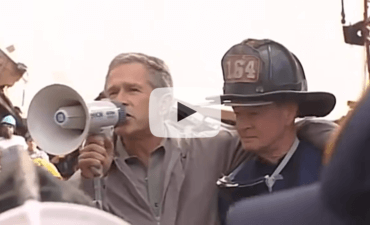20 Years After 9/11, “Never Forget” Requires Remembering Everything
|
|
MEF FILMS ON AMERICA’S RESPONSE TO 9/11
Beyond the Frame: Alternative Perspectives on the War on Terrorism (2004) features interviews we conducted in the immediate aftermath of Sept. 11 with some of the most prominent progressive voices in the nation, including Noam Chomsky, Bernie Sanders, Naomi Klein, Manning Marable, and Janine Jackson.
Beyond Good & Evil: Children, Media & Violent Times (2003) explores how children were affected by U.S. media coverage of 9/11 and the ensuing wars in Afghanistan and Iraq, placing special focus on the simplistic good-versus-evil narratives and tropes propagated by the Bush administration.
Independent Media in a Time of War (2003), featuring award-winning journalist Amy Goodman of Democracy Now!, dissects corporate news media coverage of the earliest days of the Iraq War, revealing a disturbing pattern of complicity and a total failure of journalism.
Hijacking Catastrophe: 9/11, Fear & the Selling of American Empire (2004), released at the height of the Iraq war, explores how neoconservatives and other war hawks, with the help of a complicit and cowed U.S. news media, exploited the fear and anxiety unleashed by 9/11 to push imperial policies abroad and repressive policies at home.
War Made Easy: How Presidents & Pundits Keep Spinning Us to Death (2007), featuring media scholar Norman Solomon and narrated by actor Sean Penn, traces recurring patterns across five decades of U.S. war propaganda and corporate media complicity, from Vietnam to the Iraq War.


